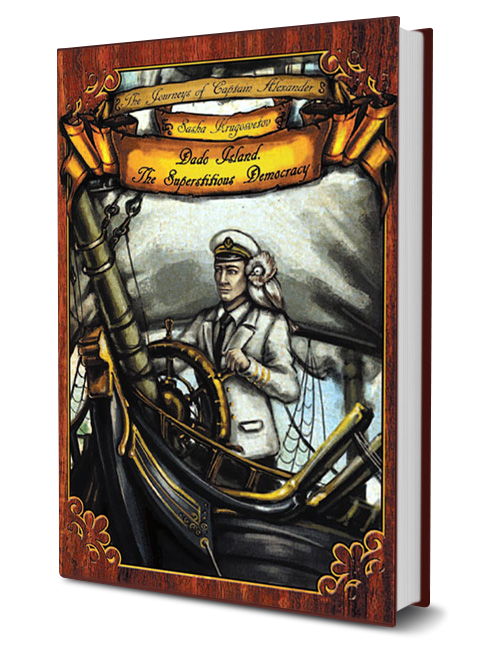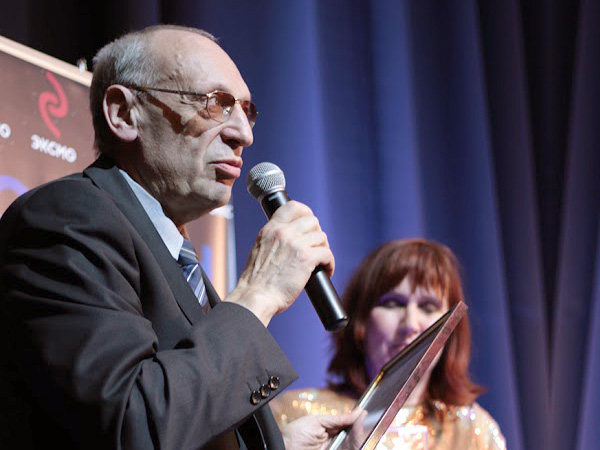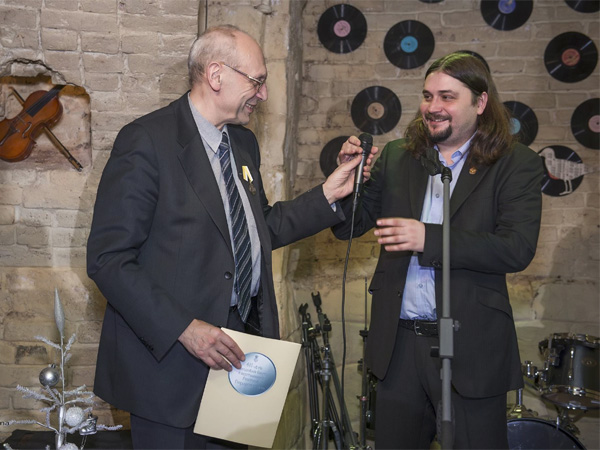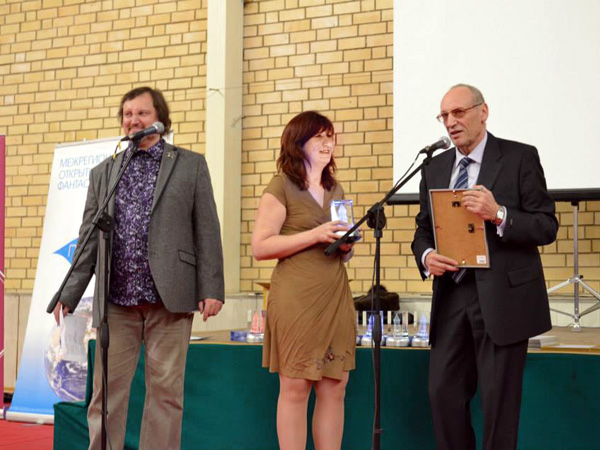The Beautiful Island (in place of a foreword)
We can note one special trait:
the contours of all Gondwana’s shards
are all alike:
you see a torch or a bouquet
whose crown has shifted to the left (the West).
Don’t we have a good hypothesis
to explain how this could happen?
V.Tnemagrep
Once upon a time, when the ‘Fast Sails’ was on her way back to her native shores after a long journey, a large strip of land came into view, covering the entire horizon from North to South.
The Ship’s Boy, who had been the first to spot the shore, asked in amazement:
‘Is that Africa? I’d thought that we were still very far away from Africa.’
‘Don’t gawp, Boy,’ replied the Navigator. ‘That’s not Africa yet. That’s just a very large island, in fact a miniature continent. There are only two or three islands of this size. Some maps call it Maidan [1], on others it is called Maidanscar.’
‘And what do the islanders themselves call it?’ the sailors asked the Navigator.
‘They also use several names. Its official name is Maidanscar. In the old times the animals living on the island used to assemble on a large clearing, the Maidan, in order to elect a leader. The leader would recruit a militia to stand up to the cruel and bloodthirsty Fossa, the only major predator on the island…’
‘And who is this Fossa?’
‘Fossa is a carnivorous animal the size of a large dog, resembling both a polecat and a large cat. It easily climbs trees and hunts mammals, birds and lizards.’
‘So, they elected a leader and recruited a militia on the Maidan. This is the origin of the island’s names – Maidanscar, Rock of the Maidans, or just Maidan – they mean ‘island of animal sovereignty.’’
‘It has yet another name,’ said Captain Alexander, who had overheard them talking. ‘When we land on the island and get to know it, you will all agree that the most correct name is ‘Island of the Holy Dado.’ And all islanders say ‘Our Dado Island!’’
Nobody understood why it was the Island of the Holy Dado and who this Dado was. And nobody went to ask the Captain why this was the most correct name. Dado means Dado!
While the ship is approaching the shore I will tell you something about this unusual island.
At some point the island had been part of the ancient Southern continent of Gondwana. 200 million years ago it broke off from Gondwana, together with Hindustan. Then Hindustan became separate and drifted northwards, until it collided with the Eurasian continent. The remaining part of Gondwana split and became the basis for Antarctica, Australia, Africa and South America. But our island kept its distance from all continents.
Dado Island amazes the traveller from the very first glance: against the backdrop of bright red earth, which looks as if it comes from Mars, you see the luxuriant green vegetation of savannahs and jungles. As you advance inland, you encounter a unique mini-continent with a multitude of different natural habitats. Tropical rainforests alternate with semi-arid steppes and impenetrable swamps. High-mountain plateaus and mountain masses with unique cosmic landscapes and geysers neatly give way to canyons with waterfalls and mountains lakes. Fertile grasslands change into the palisades of intricately weathered cliffs.
The ocean currents that wash the island’s shores, and the winds that blow over the ocean straits, are such that neither animals travelling on felled trees nor seeds released by plants on the continent can reach the island and settle on it. For this reason, nature on Dado Island has remained isolated from the rapidly developing planet for many millions of years. Thus it has been preserved in its original state, and today it represents a living fragment of the earth’s history. Only on this island can you still find forms of plant and animal life that died out long ago in all other parts of the world. Travellers find that Maidanscar is a real time machine that transports them into back into pre-history (the period that is 25 to 5 million years in the past) [2].
The baobabs, palm trees and bamboos that grow on this island grow you won’t find in any other place. Bottle trees are rising alongside jacarandas whose wood is violet, pink and black. There are many rubber plants. The trees in the forest are entwined with the gigantic liana entada, of the legume family, whose pods reach two metres in length. It is the only plant whose stalks withstand a termite attack. Gigantic ferns are growing alongside the ravenala, also called traveller’s tree, with its unusually beautiful fanned banana leaves that collect water in their base. The forest is blooming with garlands of sumptuous orchids. All this together creates the inimitable magic of Maidanscar’s forests.
The island’s animal world is just as unique. The majority of the animals of Maidan don’t live anywhere else on our planet. There are polecats, such as the fossa and the fanaloka. There are lemurs, endearing prosimeans with pointy little snouts that resemble a fox’s and huge round eyes that can see in the dark. Then there are chameleons that are so unusual that they appear to have come from another planet and exotic iguanas, some kinds of which have a third eye on the crown of their head. The island is home to the largest and most beautiful butterflies, as well as to brightly coloured tree frogs and tomato toads. You can also find birds of unusual colouring and appearance: crows with a white neck, red sparrows, green doves, crested nightingales, blue cuckoos and black parrots. There are strange little animals called tenrecs that resemble a hedgehog, minute funny bats, spiders that spin a web with a diameter of more than one metre… we could continue this list for a very long time, and the island might just as well be called Lemur Island, or Chameleon Island, or Butterfly Island, or Orchid Island. But it is called Dado Island. Later we will see that not just the animals themselves that are unique. Their lives, too, are different from that of the animals living in the forests, prairies, steppes and mountains in other parts of our planet.
Part One,
in which we meet Seryoga the Lemur, Captain Alexander’s friend, and find out about the superstitious democracy of the animals on Dado Island.
Friend Seryoga is an expert on animal democracy
SPAM is the mass mailing of commercial, political and other informations to persons who have expressed no interest in receiving this information.
Wikipedia
The ship was approaching Dado Island. The sailors asked Alexander, who had been there before, what made this country and this island so interesting.
‘You know, my friends, how complicated the relations between animals are in a pride of lions, a pack of wolves, a herd of antilopes or zebras, a flock of birds. We are sincerely delighted when we see the perfect organisation of societies of ants, termites, and bees. There are also different species that work together successfully: the shark allows the pilot fish to feed on the leftovers from its table, the Galapagos tortoise waits for a finch to cleanse it from parasites, and the sea lion doesn’t object to the lava lizard catching the flies sitting on its back.
But can you think of a single example where animals jointly solve the problems affecting them in a territory they share? For example, how to defend themselves against common enemies or an attack of dangerous insects? How to preserve the steppes and forests that provide them with food and shelter? How fairly to distribute plots of arable land so as to avoid conflict or reduce it to a minimum? How wisely to limit the excessive appetite of predatory animals and insects? I imagine that you don’t know any such examples. But here, on the island of Maidan, you will encounter exactly such an unusual world. Because of the island’s complete isolation, the evolution of plants and animals slowed down. However, something else happened instead, and it turned out that the long period of isolation was not in vain. Instead of the species themselves, what evolved were the social relations between the islanders. Over the course of many millennia of enforced joint residence, the organisation of the animal society improved, underwent a gradual progress and ultimately reached unprecedented heights. This animal country now has an administration like France or England – a parliament which is elected by all the inhabitants of this unusual island, who enjoy equal rights. Anybody can vote, and anybody can be elected. Anybody, from the biggest crocodile down to the smallest midge or mosquito. That is the principle of this animal democracy, which is millions of years old already. People could learn a lot from the animals on this island, if only they wanted’, Captain Alexander concluded his story.
‘But we don’t want to learn anything. We will just follow the well-trodden path on Maidan, and stubbornly repeat the mistakes made by others.’
‘Well exactly! I don’t understand what one should learn here,’ proclaimed the Boatswain , ‘we know these rotten democracies in France and England. What can they do in the end, these much-vaunted parliaments? Nothing but waffle [3]! Society ought to be organised in the same way as we here on the ship: all decisions are taken by our Captain Alexander, and above him there is only the Tsar!’
‘Don’t get excited, Boatswain,’ replied the Navigator, ‘that which works well on an ocean-going vessel isn’t very suitable for running a huge island. And on top of that we are guests in this country. When in Rome, do as the Romans do!’
Captain Alexander knew Maidan well. He had a friend here, a large, plump, short-tailed lemur called Indri. He was a charming fellow who liked to wear a striped sailor’s vest and sang to the guitar. His favourite songs were about the sea, the sailors and the lemur brotherhood. And nifty he was, too – he was a competitive swimmer who loved to jump out of high trees for a bet. But in the evening he would find a place to be alone, quietly watch the sun go down and dream about his country’s future. His fellow lemurs regarded him as one of the lads. They called him simply Seryoga.
It seemed that all the forces of nature had conspired to make Seryoga the Lemur as endearing as possible. The other lemurs imitated him. Those with a tail would dye dark stripes into it so that the tail resembled Seryoga’s striped vest. And when Seryoga sang, lemurs of all kinds –Red, Black, Cat-like, Sifakas and others – sang the second part to his mighty howl. There was the high clear whistle of the Crested Indris, and the tender chirp of the charming Lori, and the low grumble of the ungracious Aye-Aye. A concert not for the fainthearted! Those who heard it for the first time, shivered.
Seryoga was the undisputed leader and actively participated in the process of establishing animal sovereignty on the island. He created and headed the Lemur party ‘Society for Peace and Justice on Maidan’ (SPAM [4]). And he led it into parliament. The party slogans were ‘Equal rights for all voters!’ and ‘Eating insects is unfair!’ What noble words! What high slogans! The Lemurs’ policies resembled their singing: a loud cacophony that sends a shiver down your spine but yields no results whatsoever. We shall return to that.
Seryoga, who was an expert on the recent history of Dado Island during the period just before and after the establishment of democracy, told Alexander much about it. You too should listen to a few of the instructive stories about how the inhabitants of Maidan, the island of the most successful animal democracy, lived and solved their problems. Perhaps you will find it easier to understand and more interesting than our dear but dim Boatswain. We shall be kind and not judge him. There was much that our Boatswain didn’t understand. He lived almost one hundred and fifty years ago, when society in many highly developed countries was defined by ignorance, lawlessness and violence. The world has advanced a lot since then, but even now, and even in our progressive country, we can easily identify many traits that were typical of the ‘feral’ democracy of Maidan Island in the nineteenth century.
Let us begin our story by pointing out that before the establishment of democracy the regime on the island had been a dictatorship of the workers.
The Zebu Dictatorship
Shake off the fetters of the past
You slaves, take wings.
Then the world will change real fast:
Now nothing, we will be everything!
Battle song of the founding bulls.
The more immoral the authorities, the greater the callousness with which they destroy plant life. The bulls’ favourite pastime was cutting down trees in order to increase pasture. Large corrective labour camps were established, the main purpose of which was to destroy the forests and, of course, correct the workers.
From the tales of Seryoga the Lemur
Recorded by Captain Alexander
The dictatorship of the workers was established by the Zebu bulls. As ‘workers’ they defined those animals who were working for the common good: insects, rodents and herbivores. Insects pollinate flowers, thus making trees bear fruit; they collect honey, cleanse the forest from waste and clear away the traces of decay in flora and fauna. Rodents work the fields and collect crops. Herbivores pluck grass and shrubs, thus fostering healthy growth, and enrich the soil. The other animals, or so the Zebu think, are of no use to society. They grow fat on the result of other animals’ hard work and eat their peers, as well as insects and rodents.
The workers’ dictatorship began a long time ago when the great teachers, the powerful Zebu bulls, founded the ‘Workers’ Corporation’ (WORKCORPS). They promised to bring the country genuine animal sovereignty.
The founding bulls were very popolar and addressed by first name – Kuzma, Foma, Ilya. They possessed an outstanding degree of personal modesty and genuinely cared for ordinary workers, i.e. insects, rodents, and herbivores. ‘Useless’ animals, such as lizards, snakes, lemurs, mongooses and others, were driven out of the country, with the exception of a small number of those who agreed to cooperate with the new regime.
The bulls took great care to ensure that all were reduced to the same level. They meticulously chewed off any blade of grass, cone or small bush that stuck out from the rest of the row. As a result, the harvest of fruit and honey on Dado Island decreased dramatically.
The bulls declared universal equality and brotherhood. ‘The country must be led by ordinary workers, those who have come from the lowest rungs of society,’ they maintained. ‘He who was noone will be everything!’
However, neither insects nor rodents nor other islanders were allowed to occupy any of the leading posts, with the exception of the so-called ‘nomenclature’– leaders who belonged to a narrow circle that consisted of the bulls themselves and a small quantity of bushpigs and mountain goats. These leaders were appointed by list.
The bulls allocated themselves the best pasture but, as they were unrestrained and did not think about the future, they recklessly trampled down the very fields they were grazing upon. The island became deserted as population numbers fell sharply, but as soon as dissident voices emerged, they were beaten, kicked, trampled, butted, driven out of the country or sent to do corrective labour.
The more immoral the authorities, the greater the callousness with which they destroy plant life. The bulls’ favourite pastime was cutting down trees in order to increase pasture. Large corrective labour camps were established, the main purpose of which was to destroy the forests and, of course, correct the workers.
The emblem of the Workers’ Corporation was a crossed sickle and axe. This emblem demanded that the party members destroy the forests and transform them into pasture. For the education of the young generation and the preparation of a new nomenclature the party founded its own youth organisation, called ‘Children’s Work Corporation’ (CHILDCORPS).
This regime, which should really have been called ‘dictatorship of the Zebu’ and not ‘dictatorship of the workers’, would have continued forever, had it not been for the spite and envy of the very bulls that made up the WORKCORPS.
The great founding bulls fought each other constantly and brutally. From time to time, one of them would go for a walk in a shady grove and for some reason fail to come back, never to be seen again. Things continued in this vein until only one of the founding bulls was left, the greatest of the Zebu bulls, a most modest beast, a hard worker and wise father of the working animals, who was living solely by his concern for the workers’ happiness. And the workers, knowing this, were born and died with his name on their lips.
Time went by and the father bull of all workers also passed away.
The bulls thought about who would be able to continue his work and lead the WORKCORPS. They nominated bulls from the old guard, but they were too old and senile already, hardly able to move and relying on other’s help even for eating. And so the appointed leaders were regularly replaced by other candidates for promotion who were just as decrepit. The regime disintegrated. The young bulls and calves lacked the powerful spirit of the founding fathers and did not understand the great mission entrusted to the bulls.
Notes
1. ‘Maidan’ is originally an Arabic word, meaning ‘open space, market, square’ – a place the local community uses for meetings. It is also used in the Urdu language, which is used in India and Pakistan, and in Ukraine. For example, the central square in Kiev, the capital of Ukraine, is called ‘Maidan Nezalezhnosti’ – ‘Independece Square’.
2. The period between late Oligocene and early Miocene of the Cainozoic (most recent) period of the history of the Earth.
3. The world ‘parliament’ derives from the French verb ‘parler’ – to talk. It is unlikely that the boatswain knew this French word, but he intuitively felt that parliament is a place where people are preoccupied with idle talk.
4. SPAM are useless, unsolicited email messages that we receive in high quantities and that clog up our inboxes, interfering with our usual business.









